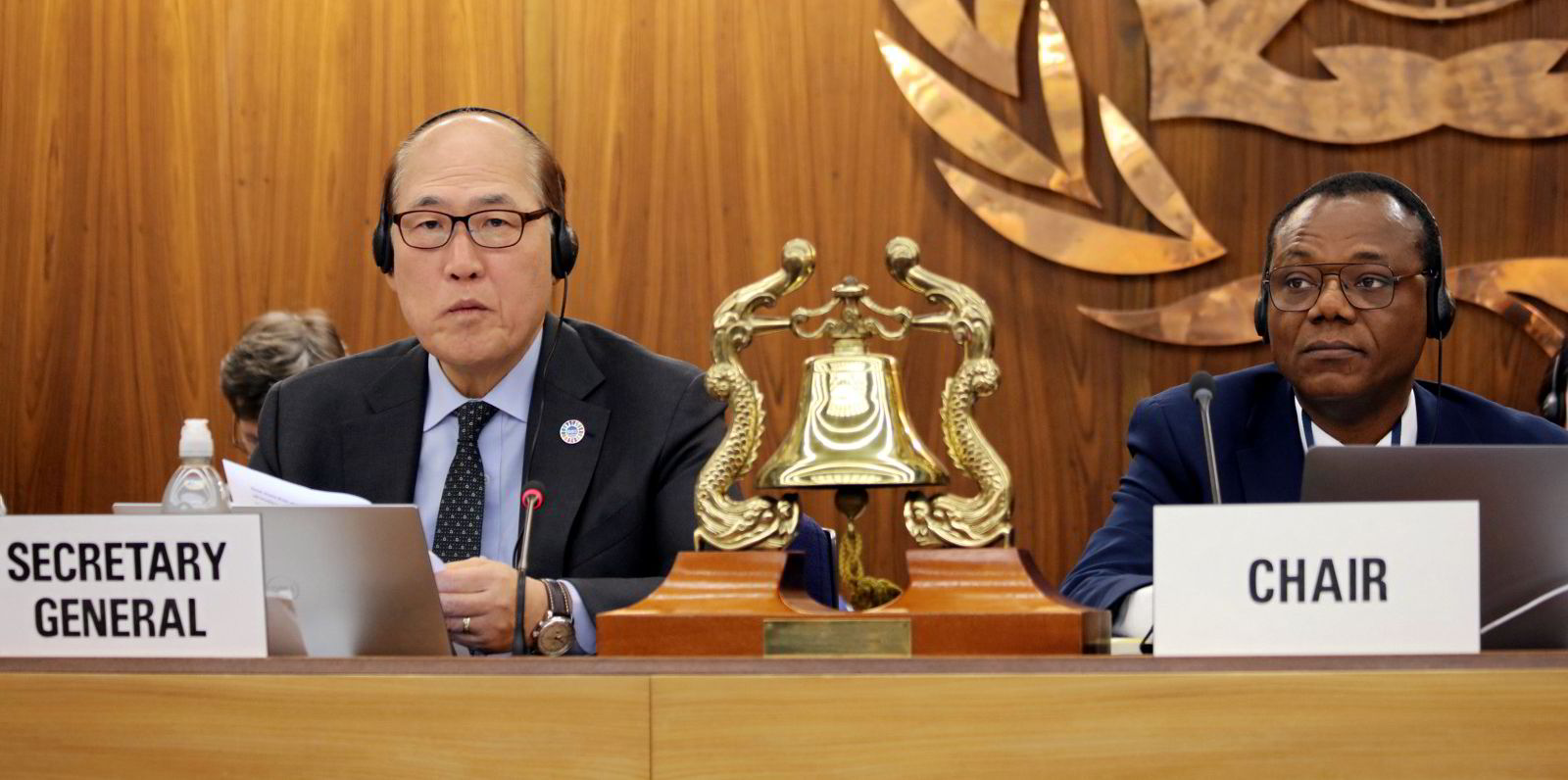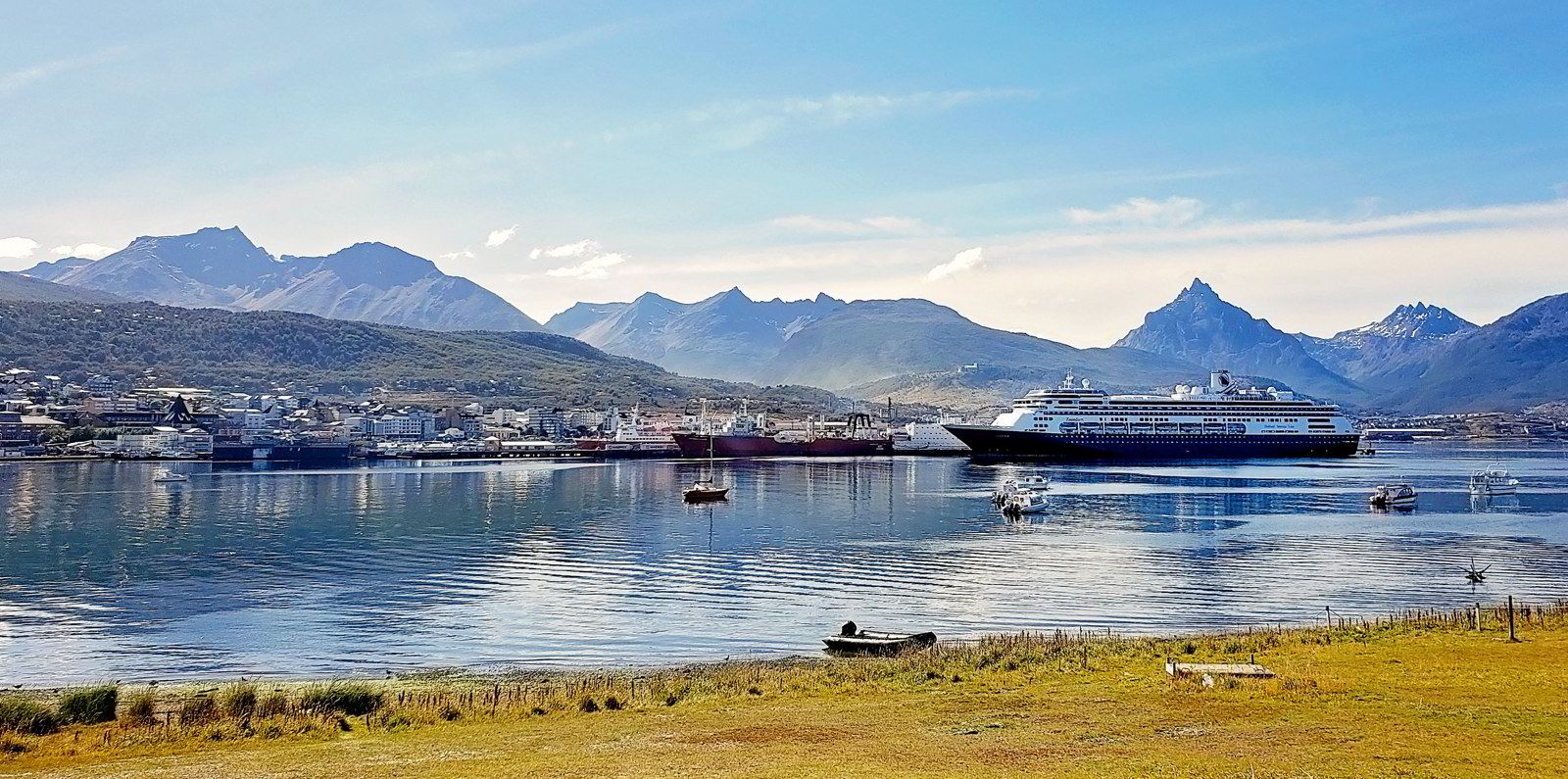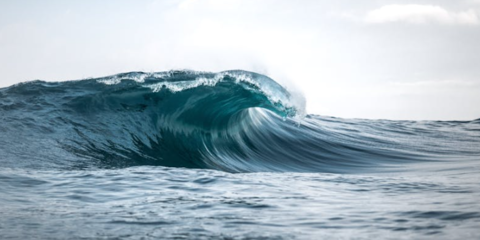A growing majority of countries at the International Maritime Organization are in favour of adopting either zero-carbon or net zero targets for shipping in 2050.
But the Marshall Islands and other Pacific nations failed to secure a resolution at a committee meeting that ended Friday that would commit to phasing out shipping’s greenhouse gases by the end of the century.
“Once again, we go home disappointed that we weren’t able to convince this room that this is an important issue for the world,” Marshall Islands ambassador Albon Ishoda told the Marine Environment Protection Committee on Tuesday after the lack of support became clear.

The latest edition of the Green Seas podcasts explores why some countries at the IMO remain opposed to adopting, at least for now, a more ambitious decarbonisation target.
A tally of the committee meeting by environmental groups found that 10 countries voice opposition to increasing the greenhouse gas ambition at the IMO, a UN body that operates by consensus. The countries were South Africa, India, Brazil, Argentina, United Arab Emirates, Indonesia, Saudi Arabia, China, Russia and Turkey.
Many of those countries expressed concerns about setting a zero-carbon target while measures to get to that target were still being considered.
And they raised concerns about ensuring an equitable energy transition for the shipping industry, with a path to decarbonisation that ensures that developing economies are not hurt by, for example, putting a price on carbon emissions.
A delegate from Argentina, for example, raised concerns about the economic impact of a carbon levy.
‘Not equitable’
“That is not an equitable measure, because the potential is great that the greatest cost of freight would be born [by] or transferred to the primary producer, including the small and medium countries, or the consumer,” she said, speaking through an interpreter in an IMO recording of the meeting.
A delegate for Brazil warned of problems with adopting a stronger ambition without having agreed on the measures to get there.

“At first glance, and without more clarity regarding measures to be adopted, such levels of ambition seem technically fragile and politically risky,” he said through an interpreter.
The IMO is also planning to carry out impact assessments of carbon pricing measures and fuel standards under consideration, and some developing nations believe figuring out the terms of that effort should be ironed out before adopting a zero-carbon target.
No country left behind
“The basket of candidate measures should be assessed before they are adopted, and any disproportionate impact on developing states be addressed in a fair, just and equitable manner that guarantees that no one is left behind in its true sense,” said a South African delegate.
As TradeWinds has reported, India has urged the environment committee to avoid setting a set target for 2050 but instead to focus on progressive goals based on what is achievable.

A delegate acknowledged that the country is vulnerable to climate change, but he told the IMO that even the best are not sure what technology ships will be able to use in 10 years.
“When the industry is going through such a disruptive stage, it is the responsibility of this organisation, particularly this committee, to provide them with regulations that can stand the test of time and develop a policy framework that could facilitate a stable, predictable and competitive business environment,” he said.
Decisions on the IMO’s 2050 ambition and the mid-term measures to get there are expected in July.
Read more
- Editor’s selection: Lenders off track from green goals, Maersk’s Skou to step down, and the Saverys turn the screw
- Green Seas: Scrubbers face questions as sulphur cap approaches three-year mark
- ‘Here we are once again’: Marshall Islands disappointed that IMO won’t adopt zero-carbon goal now
- Ocean Rebellion protest stages oil slick and death of oceans outside IMO
- IMO nations gravitate toward zero emissions amid ‘surprise’ support for strong 2030 targets


